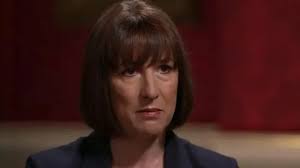Where's Rachel? Markets Swing as Pound Tanks
Discover the latest insights on the current market fluctuations as Stride asks, 'Where's Rachel?' Understand how these changes are impacting the economy and the pound's value.
POLITICS
Ed Grimshaw
1/9/20253 min read


If ever there was a moment to reprise the old adage about rearranging deckchairs on the Titanic, today’s market meltdown has provided ample justification. With sterling plunging faster than the hopes of a Love Island contestant embarking on a politics degree, the nation’s financial markets are performing a tragicomedy that would make Alan Ayckbourn proud.
At the centre of the drama is not Chancellor Rachel Reeves, who has seemingly adopted an invisibility cloak worthy of Harry Potter, but Darren Jones, her unfortunate understudy. Jones, the Chief Secretary to the Treasury, stepped into the Commons with the enthusiasm of a man about to defend an indefensible parking ticket.
“Markets are functioning in an orderly way,” Jones declared with the conviction of a weather presenter predicting sunshine in a downpour.
Bond Yields Soar, Confidence Sinks
The backdrop to this spectacle is a catastrophic rise in UK borrowing costs. Yields on 30-year gilts have reached their highest level since 1998—back when Tony Blair was cool, and the Spice Girls were topping the charts. Meanwhile, the benchmark 10-year gilt yield has surged to its loftiest perch since 2008, a year etched in infamy for financial collapses and ill-advised mortgage decisions.
But fear not, the Treasury assures us. Rising yields are merely the work of “geopolitical events” and “data.” Which data? Presumably, the kind that suggests Britain’s public finances are wobblier than a three-legged table at a jumble sale.
Kathleen Brooks of XTB put it bluntly: “The UK is in the firing line.” It’s a stark warning, not that anyone in Whitehall appears to be listening. The pound, meanwhile, has plummeted to its lowest since 2023, dragging with it whatever morsels of investor faith were left.
Where’s Rachel? The Hunt for the Chancellor
Shadow Chancellor Mel Stride wasted no time pointing out the obvious: “Where is the Chancellor?” It’s a fair question. When your house is on fire, one might expect the homeowner to appear, at least to shout “Oh no!” before calling the fire brigade.
Stride’s frustration is echoed across the Commons. Sir Edward Leigh, the Father of the House, quizzed Jones on whether Reeves planned to raid taxpayers’ pockets further or resort to even more borrowing. Jones responded with a waffle so dense it could serve as ballast for the sinking pound. “Public services must live within their means,” he insisted, while deftly avoiding specifics about the Chancellor’s next moves.
Public Finances: The National Jigsaw Puzzle
For a government that claims to prize fiscal responsibility, recent events suggest its grip on the nation’s chequebook is about as firm as jelly. Reeves has pledged to meet fiscal rules—specifically, ensuring that day-to-day spending is covered by taxes and that debt falls as a percentage of GDP.
But as borrowing costs soar and bond yields scream for mercy, achieving these targets may require something short of magic and something long on realism. The Office for Budget Responsibility (OBR) will deliver its latest forecast in March, at which point Reeves is expected to re-emerge from her Westminster burrow like a beleaguered groundhog.
The Great Blame Game
Jones, for his part, was quick to blame the previous Conservative government, accusing them of crashing the economy and “stacking up the country’s credit card.” It’s a tried-and-true tactic in British politics: blame your predecessor with the enthusiasm of a dog owner accusing next door’s cat for the mess in the garden.
But this crisis isn’t merely a hangover from past governments. It reflects deeper structural weaknesses in the UK economy: stagnant growth, an overreliance on debt, and a currency that increasingly looks like Monopoly money.
Retail Carnage and the FTSE 250’s Woes
It’s not just the Treasury feeling the heat. The FTSE 250 has sunk to an eight-month low, dragged down by lacklustre retail performance. B&M shares have dropped a dizzying 13.4% after revising its profit forecast, while Marks & Spencer slid over 6%, citing rising costs and economic uncertainty.
The FTSE 100, meanwhile, managed a modest rise, buoyed by the perverse optimism of investors who seemingly think things can’t get worse. Spoiler alert: they can.
The Curtain Call: Uncertainty Reigns Supreme
For now, the UK economy resembles a particularly chaotic episode of The Thick of It. Ministers talk tough about fiscal discipline while simultaneously juggling an unravelling economic narrative. The pound continues its nosedive, markets remain jittery, and ordinary Britons brace for the inevitable fallout: higher taxes, cuts to public services, and a cost-of-living crisis that shows no sign of abating.
As for Rachel Reeves, her silence is louder than any speech she might have given. If she doesn’t step forward soon, she risks being remembered as the Chancellor who vanished when the country needed her most. Darren Jones may have answered the urgent question, but the urgent answers are still conspicuously absent.
